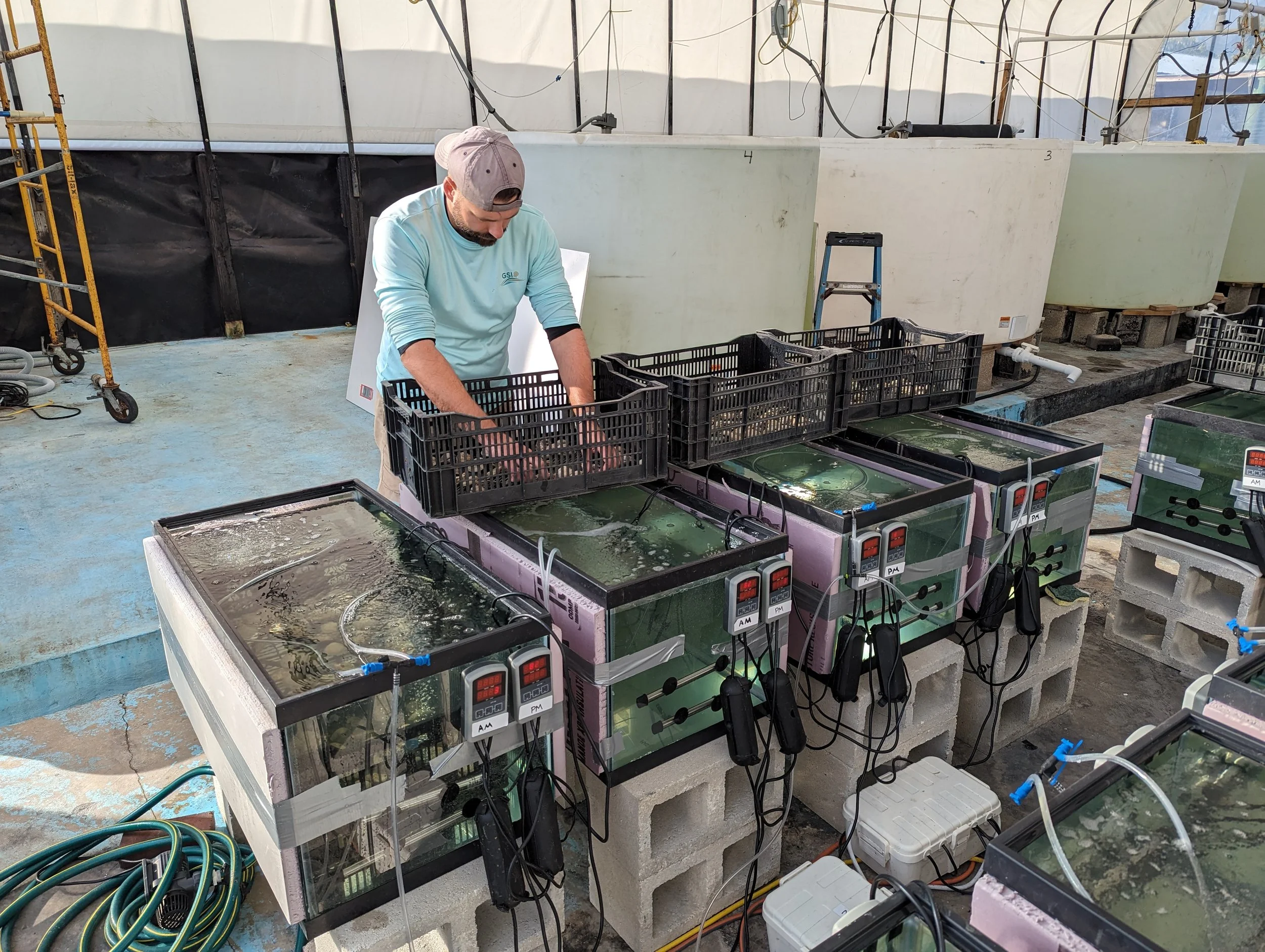It’s Getting Hot in Here
Cedar Key is a hotspot for Florida’s shellfish industry, specifically hard clam aquaculture, however, during the summer of 2023 Cedar Key clam farmers reported mass mortality events. During summer 2023, Florida shellfish leases in Cedar Key experienced a marine heatwave where temperatures reached 96.6°F while experiencing variable salinities. The team at the Gulf Shellfish Institute set out to determine how multiple marine stressors (temperature and salinity) could affect locally aquacultured shellfish, and in turn, their farmers.
In the fall of 2023, GSI tested the thermal tolerances of northern hard clams (Mercenaria mercenaria), southern hard clams (M. campechiensis), and eastern oysters Crassostrea virginica). Nine week-long trials testing two salinities (a low salinity of 18 PSU and full-strength saltwater at 30 PSU) and 5 temperatures (82, 88, 91, 95, and 99°F). Temperatures used were chosen to include current and future climates.
The study found that eastern oysters are highly resistant to both salinity and thermal stress, with survival around 99%! Hard clam survival was overall much lower, but the northern hard clams better handled heat alone, with 11% surviving at 99°F and 30 PSU, while 0% of southern hard clams survived the same treatment. The native southern hard clams tolerated low salinity stress better than the northern hard clams at 63% and 37% survival, respectively, at 88°F and 18 PSU.
This unique experiment mimicked the natural diurnal cycle to more accurately test how bivalves react to environmental stressors. We were able to gain insight into how different hard clam species react to stressors and react to a warming climate. GSI is interested in further studying how hard clams respond to a wider range of salinities and will explore this in a follow up experiment this spring. GSI hopes results from these studies can aid site selection for aquaculture and restoration efforts throughout Southwest Florida.


